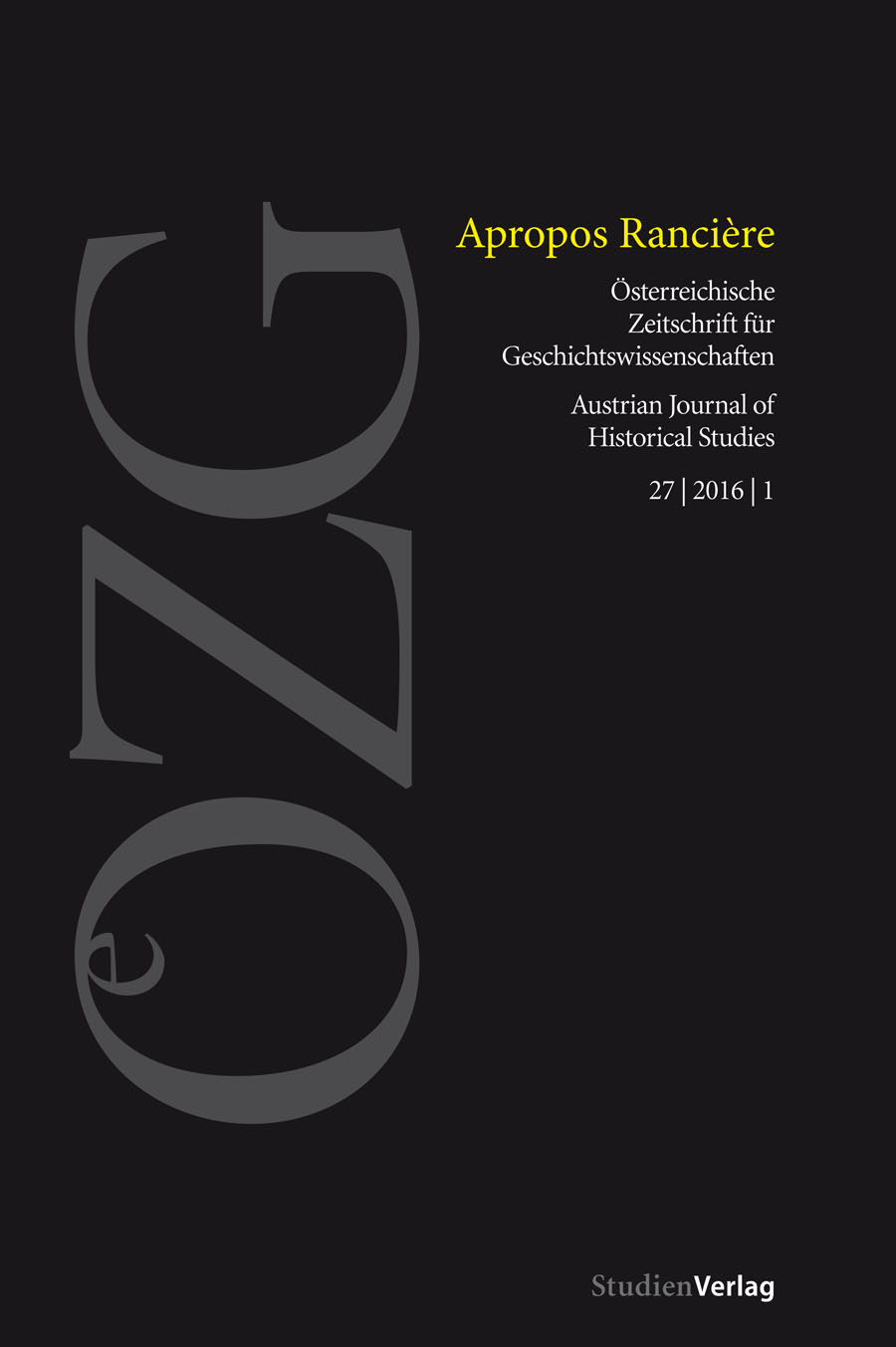Namen der Geschichte – Politik des Namens
Historische Benennungskraft und die politische Theorie des Postfundamentalismus (Rancière, Laclau, Agamben, Brossat)
DOI:
https://doi.org/10.25365/oezg-2016-27-1-4Schlagworte:
Brossat, Agamben, Laclau, Rancière, post-foundationalism, radical democracyAbstract
In this article, it is argued that Rancière’s theory of history should be located in the eld of political theory rather than historiography. To substantiate this claim, the historico-political function of naming (of the people) or self-naming (by the people), as presented by Rancière in the Names of History, is discussed and compared to the explicitly political role attributed to naming by Ernesto Laclau in On Populist Reason. It is argued that in both cases an inner dialectic can be observed between plebs and populus (or demos) which also gures in the theories of Giorgio Agamben and Alain Brossat. However, in Agamben and Brossat the plebs is presented in such messianic or insurrectionist terms that any connection to the world of real politics or to the category of the political is lost. On this account, Rancière’s and Laclau’s theories fare better, but, conversely, suffer from what can be described as a normative deficit. As a remedy, a post-foundational theory of democracy is proposed in which the ethical and the political are seen as two separate but intersecting dimensions of democracy.


